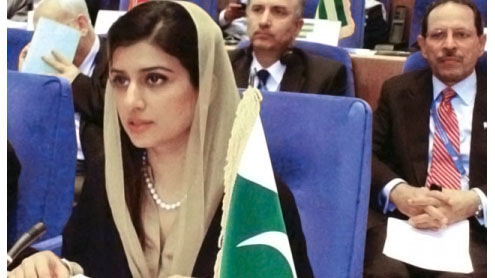
Iran’s preparations for the Non-Aligned Movement (NAM) Summit that opens today in Tehran for two days of discussions on a host of issues saw a Ministerial Meeting on its eve, addressed amongst others by Pakistan’s Foreign Minister Hina Rabbani Khar.
Ms Khar stressed that the growing confrontation over Iran’s nuclear programme threatens further instability in the broader region. She emphasised that only diplomacy and dialogue should be used to resolve such contentious issues, words of wisdom likely to fall on deaf ears in western capitals demonising Iran, as well as in Israel, leading demands to bomb and destroy Iran’s nuclear facilities to pre-empt the development of nuclear weapons. Tehran has consistently refuted such allegations, stressing that its programme is for purely peaceful purposes. That cuts no ice with Iran’s accusers, flying in the face of the facts and wiser counsel on the peaceful course to follow to resolve this conundrum.
At the heart of the current phase of the controversy is the Parchim nuclear facility, allegedly used for explosives experiments thought to be preparations for nuclear explosions. The International Atomic Energy agency (IAEA) has been denied access to the facility because Iran wants the IAEA to first share with it the documentary evidence on the basis of which the suspicions about Parchim have been doing the rounds.
The IAEA has declined to share this documentary evidence on the plea that it has received this from foreign intelligence agencies on the promise of confidentiality. In other words, the ‘evidence’ on which Iran is charged with seeking to develop nuclear weapons is denied to it. Not even in common jurisprudence would this be considered acceptable, let alone at the level of international issues and diplomacy.
The unnamed foreign intelligence agencies need no flight of imagination to be identified. The western countries, led by the US, and Israel would fall into the fold of the usual suspects. These very intelligence agencies were behind the manipulation of the IAEA and the alleged nuclear weapons (or weapons of mass destruction, including gas) Iraq under Saddam Hussein was supposed to be stockpiling before it was invaded the second time, with an illegal toppling of the regime and the eventual hanging of Saddam Hussein by a kangaroo court. How then can objective observers place any credence on the ‘confidential’ intelligence gathered by the IAEA vis-à-vis Iran?
This would be a bit like repeating in the case of the current conflict in Syria the mistaken concession to the west to intervene in Libya in support of anti-Gaddafi forces in the name of the ‘Right to Protect’ and ending up with the overthrow of the regime and Gaddafi’s brutal murder. Objective reports say Iran has achieved 20 percent enrichment, still a long way from the 95 percent required for weapons grade uranium. The whole hullaballoo about Iran’s nuclear programme is a thin fig leaf for the desire on the part of a motley alliance of the US-led west and Israel, along with, ironically, reactionary Arab regimes stoking ant-Iran, anti-Shia strife in the region.
The very act of holding the NAM Summit by Tehran, expected to gather over a hundred countries and attended by the UN Secretary General, is a slap in the face of all those seeking to isolate Iran and demonising it for the purpose of overthrowing the regime. Like it or not, the principles of peaceful co-existence and non-intervention in the internal affairs of sovereign states are the only way to prevent a conflict in the region, which could all too easily descend into sectarian strife.
NAM may have weakened over time, especially after its raison d’être, the cold war became history, but it can still exercise a positive influence in a world increasingly driven into conflict because of the ambitions of the triumphal victors of the cold war to reshape the world according to their desires and hegemony. The NAM countries and the rest of the world not in thrall to the unholy alliance of the west, Israel and reactionary Arab regimes against Iran must stay the trend towards intervention in sovereign countries to bring in regimes of choice. That way lies greater conflict and war, something the world could do without in the middle of other, more pressing issues for the future such as the present economic woes and the task of development for the prosperity and well being of humankind. – Dailytimes












